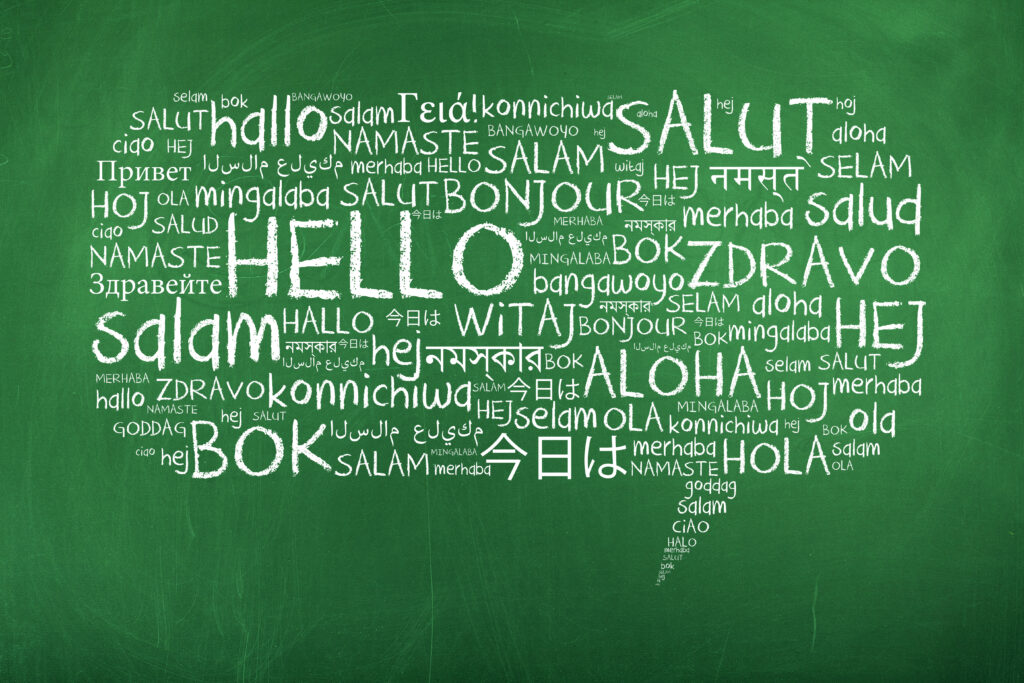Requirement numero uno of a consecutive translator is to know the language. But beyond just the language, what else makes a good translator? Customs, body language, and a general cultural understanding have a lot to do with making sure your conversation goes swimmingly.
Customs
“Customs will often outlive the remembrance of their origin.” – Thomas Paine
Have you ever watched someone experience a two-kiss greeting for the first time? Yes, I felt you cringe from here. It’s palpably uncomfortable. These are the customs that translators must know—no kiss; one kiss; two kiss; red kiss; blue kiss? The rules feel never-ending with just one tiny moment.
Ok, you might have heard of the two-kiss rule. But you might not know that your Japanese language translator needs to have a business card printed in both English and Japanese with enough to hand out to everyone, plus some. You might even want to hire them ahead of time to help you translate yours! Don’t worry about remembering that, though—that’s what a good translator is going to tell you.
Body Language
“Body language is more powerful than words.” – Ricky Gervais
Everyone, including translators, expresses body language in some way. Can you imagine if your translator walked into your high-profile business meeting, sat down, and started spinning around in the chair? I mean sure, that looks like a lot of fun, but that probably wasn’t the entrance we were all hoping for. Body language can make or break the entire situation.
We express our body language in one of four movement styles: light and bouncy; soft and fluid; dynamic and determined; or precise and bold. Think about your translator’s entrance one more time, but let’s change it. They walk in, make very direct eye contact with everyone while they shake hands, and then sit down with a pained smile in an almost-uncomfortable perfect posture. This paints a picture of who this person is in one sentence.
Cultural Understanding
“Culture is the arts elevated to a set of beliefs.” –Thomas Wolfe
Want to get down to brass tacks immediately? Your German language translator might encourage it, but your Taiwanese language translator might shoot you a look. Cultural understanding goes deep beyond the traditions or customs. This type of knowledge involves understanding the people as a whole; knowing what makes them feel awkward and what makes them enjoy being around you.
For instance, Brazilian people will likely invite you to learn more about their culture with open arms—literally, they love being close and touching. They may even slap you on the shoulder after they boisterously make a joke. Your translator should know that your Brazilian Portuguese-speaking colleague might grab your hand mid-conversation to make a point!
Conozca Más Sobre Nosotros
From parent-teacher conferences to high-profile business deals, our translators at Alamex will ensure your conversation goes perfectly. Want to know more about us? Check out our LinkedIn!

